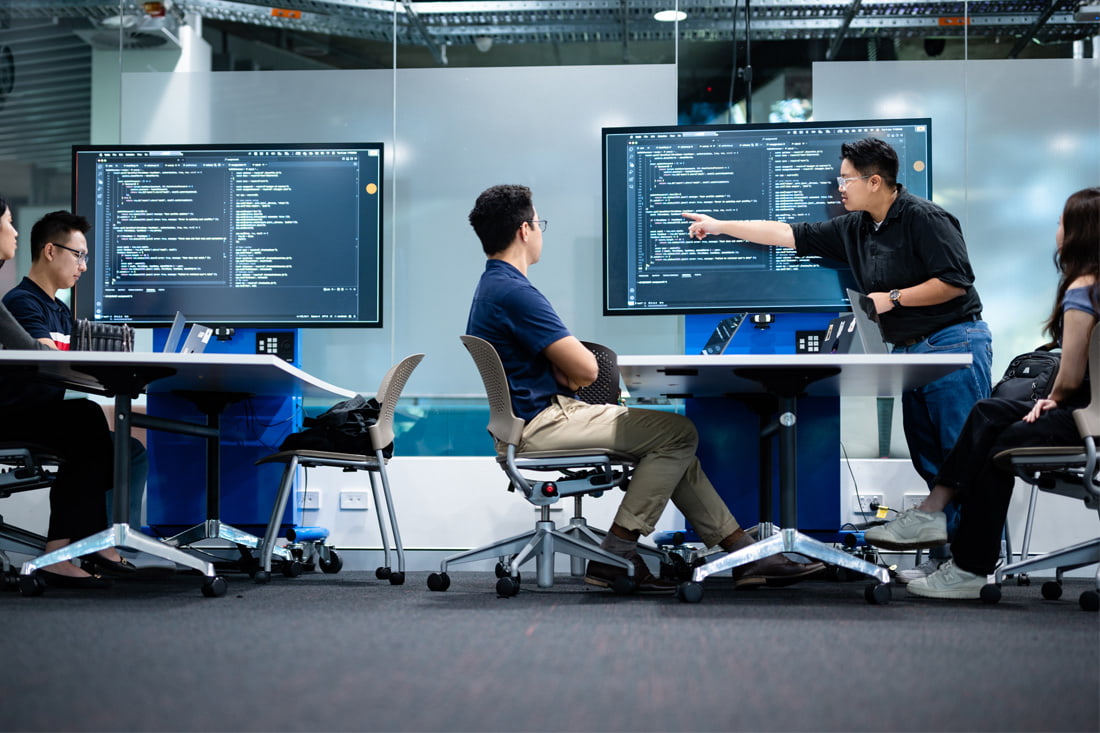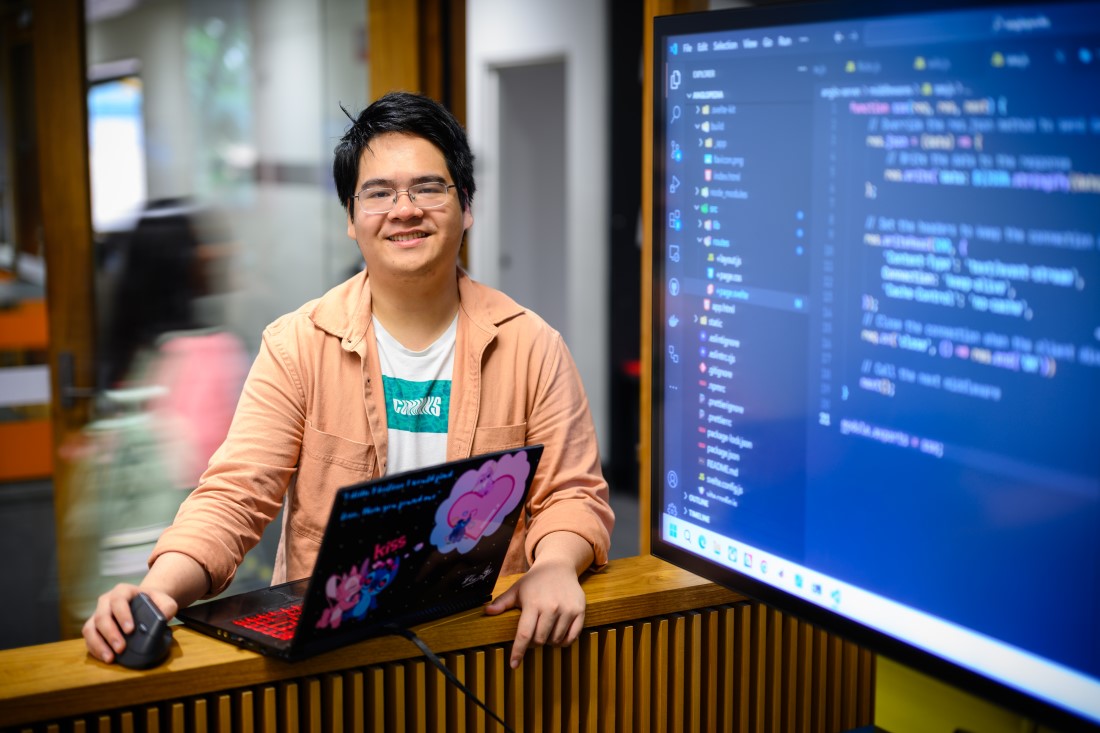In your first year, you’ll complete your common IT units, including an introduction to computer systems, learning design and building principles, and developing databases. You’ll also learn programming principles.
In the Computer Science major, you will develop application design and development skills and learn discrete structures, software development, and networks. You’ll develop knowledge of advanced concepts of algorithms and complexity. You will have practical, hands-on experiences throughout your course. In addition, you will have the option of further specialisations by choosing a second major or minors.
Your final year is your opportunity to showcase your skills with a major project. Your project will be for a real-world client and will be unveiled at the IT and Games Showcase, held at the end of the year.
Customise your degree
You can customise your degree to suit your interests. You will learn software development and networked systems, with the opportunity to gain specific expertise in information security, networks and communications, intelligent systems, data-centric computing, or user experience.
Foster your passion and shape your career through complementary study areas. As well as choosing a major area of study, your course includes a second study area, which can be either a second major or a double minor. A second major can complement your major area of study, allowing you to develop a significant depth of knowledge and skills in two discipline areas.
IT Second Majors
Computational and Simulation Science
Combines the study of science and mathematical models with computers to provide quantitative analysis and visualisation to gain insight into the solution of scientific problems from various scientific application areas. Computational and Simulation Science second major graduates will be in demand to apply the latest computing and computational techniques to specialist application areas.
Data Science
Provides the necessary skills to be a data scientist, including statistical methods and data visualisation, computational tools and data management techniques for large datasets, and high-performance computing resources and techniques. This unique skill set in statistics and computing will allow you to cope with sophisticated models applied to complex and large datasets.
Focuses on using IT skills and knowledge to identify organisational requirements and design effective and innovative IT systems solutions. In this second major, you will develop expertise in understanding information technology capabilities and implications, as well as proficiency in best-of-breed methods, techniques, and tools to improve and innovate the work of individuals and organisations.
Expand the breadth of your studies by adding to your major with one minor. You can choose from the information technology discipline or broaden your studies by completing minors that offer general knowledge and insights in study areas from across the university.
IT Minors
Business Intelligence
Focus on the areas of business, data and process analysis to critically analyse data and make evidence-based decisions.
Business Process Management (BPM)
BPM is a systematic approach to making organisations' workflows more efficient and effective. You will learn to discover, analyse, model, improve, automate and monitor business processes.;
Computational and Simulation Science
This minor provides knowledge of modelling, simulation and visualisation used in various scientific application areas.
Enterprise Systems
Develop an understanding of large-scale application software packages that support business processes and information flows across departments. This minor develops the knowledge and skills required in supporting Enterprise Systems within the modern organisation.
Develop skills in working with people, data, business processes, and technology in finding innovative ways of making these more effective and efficient.
Intelligent Systems
Explore the fields of artificial intelligence and machine learning with applications in robotics and other virtual intelligent systems.
IoT and Mobile Technologies
Develops the knowledge and skills to design and distribute applications or games. Examine the role and application of ubiquitous and mobile technologies to individuals and enterprises.
Networks and Security
Develop contemporary electronic communications infrastructure knowledge and skills, concentrating on fundamental networking technologies and information security principles.
User Experience
Develop the knowledge and skills needed to engage in user experience design activities involving emerging technologies to create new forms of human-computer interaction.












